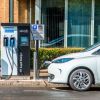Introduction
The economic impact of the Covid-19 pandemic and a decrease in vehicle usage caused by the lockdown has led to a sharp fall in the number of UK drivers who intend to acquire a new car.
The 2020 RAC Report on Motoring has found that only around half of motorists (49%) expect to change their current vehicle for a newer model in the next three years, a figure that is significantly lower than in the last two years (57% in 2019 and 65% in 2018).
At the same time, there has been a rise in the number of drivers who are considering buying either a pure electric car or an ultra-low emissions vehicle.
But this year’s report has also found a decline in the number of motorists who would consider switching to a zero-emissions vehicle in order to help improve air quality.
Choice of next car – a changing picture
The pandemic appears to have left its mark on the car-buying public with only one in every 10 motorists (11%) expecting to upgrade to another vehicle in the next 12 months – a sharp fall on the 14% recorded in 2019 and 18% a year earlier. But perhaps even more telling, is the finding that just over half of drivers (51%) do not expect to change their current vehicle within the next three years – well up on the last year’s 43%, and 35% in 2018.
Meanwhile, a third of drivers (33%) in 2020 either don’t plan to buy a new car, or do not know when they will replace their current vehicle, up from 25% a year ago.
The factors most likely to be deterring motorists from changing their vehicles this year are the widespread increase in home-working brought about by the initial lockdown restrictions, plus worries about job security and for some a loss of income. With more drivers prepared to hold on to their existing vehicles for longer or unable to afford replacements, there are likely to be unfortunate longer-term implications for national and local governments – the research suggests efforts to encourage more drivers into electric cars and to improve air quality in our towns and cities might both be hindered.
In terms of likely next vehicle purchases, cars with petrol engines remain the most popular, although interestingly this popularity is starting to wane. In 2020, 44% of motorists say they are most likely to buy a petrol car next, down from 48% last year and 58% as recently as 2017.
Importantly, the highest ever proportion of drivers (one in five, 19%) say they will buy an ultra-low emissions vehicle (ULEV) such as a plug-in or pure battery electric car next, up from 15% in 2019 (see more on electric vehicles below).
Ongoing concerns about air pollution mean that only 16% are planning to buy a diesel vehicle next. Although this is virtually unchanged on the proportion who indicated this preference last year (15%), it is still well down on the 28% recorded in both 2015 and 2016. For the first time this year, a lower proportion of drivers expects to opt for a diesel over a plug-in model.
The majority of car purchases (55%) will be privately funded, with personal contract purchase (PCP) deals accounting for 12%, and 9% made with an alternative form of finance such as a bank loan.
| Drivers’ preference for safety technology in new cars |
|---|
| This year’s Report asked motorists for their views on safety features when purchasing a new car. The most vital feature, described as ‘important’ or ‘very important’ by 91% of drivers, is airbags for all passengers, followed by a tyre-pressure monitoring system (77%), a high EuroNCAP safety rating (76%) and blind-spot detection incorporated in mirrors (75%). |
More drivers prepared to go electric – just not yet
The vast majority of motorists (98%) might not currently drive a pure electric vehicle, but as more manufacturers put new electric models on to the market there are clear signs that UK drivers are becoming increasingly willing to consider an EV (electric vehicle) as their next car.
While most drivers (56%) say they would be more likely to opt for a plug-in hybrid car as an intermediate step before going fully electric, in 2020 nearly one in 10 (9%) motorists say they intend to go for a pure electric battery-powered car next, up from 6% in 2019 and 3% a year earlier.
But clearly, there remains a number of barriers to widespread take-up of such vehicles. At present, 78% of motorists think that pure electric cars are still too expensive when compared to conventional vehicles of a similar size. And 64% say manufacturers need to offer a wider range of EVs before they would consider buying one.
The distance an electric car can travel between charges is another issue for potential buyers: on average, drivers would require a range of 375 miles on a single charge – a figure unchanged on 2019. At present, the only vehicle available in the UK that offers such a range is the high-end Tesla Model S. The Report also found that the typical motorist does not expect to buy their first electric car until the end of the current decade – a finding which will no doubt interest the Government as it brings forward the date for ending the sale of new petrol and diesel cars to 2030.
There is support for the introduction of a government scrappage scheme for older vehicles to encourage the purchase of zero-emissions cars: 48% of drivers would back such an idea. At the same time, 43% say they would like the Government to commit to a national target for the roll-out of electric charge points.
Motoring and the environment
The 2020 Report on Motoring asked motorists what steps they would be willing to take – or are already taking – to reduce their personal emissions’ footprints. This year, fewer drivers would be willing to swap their cars for bikes or e-scooters on short journeys in order to cut their emissions: only 36% would be happy to do this, or are already doing this, compared with 39% last year.
As we have discussed elsewhere in the Report, the pandemic has led to a greater feeling of importance attached to vehicles – in part due to fears of the infection risk linked to public transport. Accordingly, there has been a sharp decline in the number of motorists who would be willing to give up using their vehicles altogether for environmental reasons: only 5% say they would consider this, compared with 14% last year.
Most drivers (52%) would, however, switch to an electric vehicle in order to reduce their emissions – provided the Government offered additional financial incentives for them to do so. But only 15% would make this switch without incentives, a sharp fall on 2019’s 22%.
Encouragingly, a third (32%) would make more journeys on public transport for environmental reasons, or are already doing so – a figure that rises to 49% among London residents. And 48% support the idea of using park-and-ride schemes to a greater extent to avoid driving into town or city centres. Fewer people this year (21% versus 25% 12 months ago) say they would be willing to pay a charge to enter a city centre as part of a plan to improve air quality.
Almost half of drivers (48%) say they would be happy to switch off their engines more often while in traffic in order to cut emissions, while 16% are already taking this step – up from 10% last year.
Finally, while the overall environmental impact of motoring is one of the top four concerns for 14% of drivers – the same proportion as in 2019 – there has been a fall in the number of motorists who say they are worried about the impact of vehicle emissions on health. This year, only 10% say this is a concern, down from 12% last year – perhaps as a result of the general reduction of traffic levels in spring and early summer.






